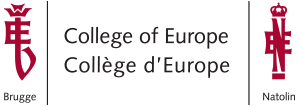17/12/2024
WEASA peer-to-peer story of Roman Karapetyan: a crossroad of collaboration: exploring European integration of Armenia and North Macedonia
The idea of a joint research project emerged during the WEASA 2024 edition in Natolin between the Armenian participant Dr Roman Karapetyan and Macedonian participant Dr Leposava Ognjanoska Stavrovska. Inspired by shared aspirations for European integration, they envisioned a joint research project. Their focus? A comparative analysis of the European integration paths of Armenia and North Macedonia—two nations navigating distinct yet interlinked journeys toward the EU.
The WEASA Peer-to-Peer initiative offered the perfect platform to bring this idea to life. Roman travelled to North Macedonia with two clear objectives: to advance their joint research with Leposava and to conduct in-depth field research on the topic. His host, Leposava, specialising on European integration in the Western Balkans, provided invaluable insights on the topic as well as engaged him in dialogues with prominent experts and policymakers, both past and present, such as:
- Dr. Vasko Naumovski, Macedonian diplomat and politician, having served as a Deputy Prime Minister of the Republic of North Macedonia for the period of 2009–2011, responsible for the country’s European integration;
- Andreja Stojkovski, Executive Director and senior researcher-analyst at PRESPA Institute;
- Filip Tosevski, a diplomat at Ministry of Foreign Affairs of the Republic of North Macedonia, also served as State Secretary at Ministry of Foreign Affairs of the Republic of North Macedonia during 2022-2024;
- Jovan Gjorgovski, an experienced journalist who currently works as a news editor at Kanal 5 Skopje. Jovan is also WEASA 2022 Alumni.
These meetings weren’t mere Q&A sessions but brainstorming exchanges that pushed the boundaries of understanding and perspective. The collaborative research they produced will soon be published, marking a milestone in their academic efforts.
But this is just the beginning. The insights Roman gathered during this visit will inform his broader work on EU integration policy, with a focus on the involvement of Eastern Partnership and Western Balkan countries. Over time, he plans to expand his research to encompass other Western Balkan nations, building a comprehensive framework. Beyond academic publications, the knowledge gained will enrich the courses Roman teaches, shaping the next generation of thinkers in this field.
For Roman, this initiative transcends research—it is a step toward fostering international collaboration. By exchanging experiences and conducting field research, Roman and Leposava have laid the groundwork for future interdisciplinary connections, joint projects, and educational programs. Their work underscores the shared values and aspirations of countries on the path to European integration, proving that dialogue and cooperation are the keys to progress.



